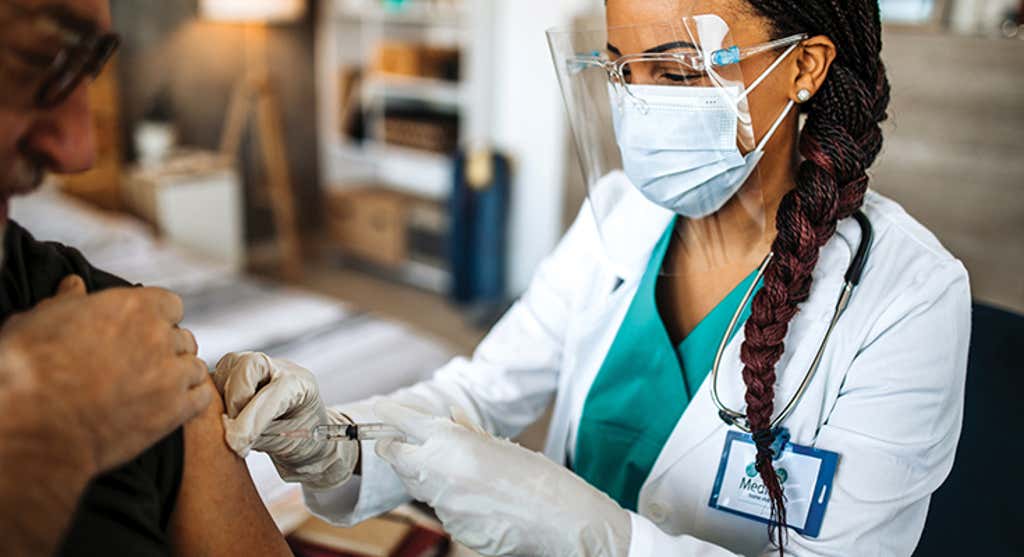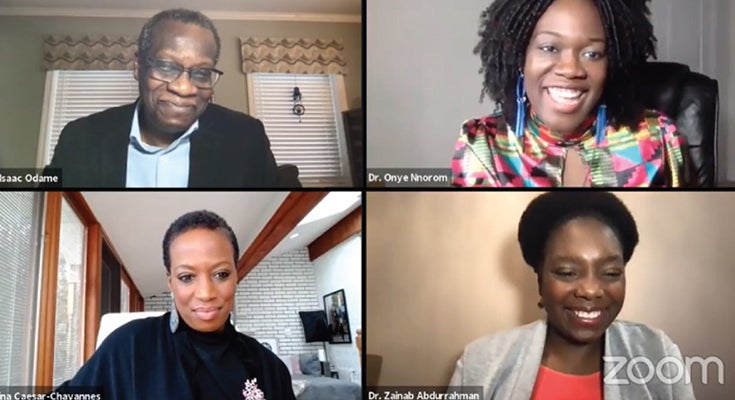
Vaccine hesitancy is decreasing in Canada, with 80 per cent of Canadians now on board with vaccines, according to recent polls.
It is likely, however, that some patients in your practice are still reluctant to be vaccinated. As a trusted source of health information, a conversation with you about COVID-19 vaccines could very well encourage them to get their shot.
We’ve put together some resources that could help make these conversations with patients easier.
The Centre for Effective Practice
The Centre for Effective Practice (CEP) developed a set of regularly updated Qs and As to ensure patient confidence about vaccines. The evidence-based responses to commonly asked questions address vaccine efficacy, special populations and contraindications. The tool is part of a set of resources developed by CEP to guide primary care providers through the latest information about COVID-19 vaccines in Ontario. They cover prioritization, availability and rollout, point-of-care guidance, details about the approved vaccines, patient resources about vaccines, and more.
Task Force of Black Scientists for Vaccine Equity
COVID-19 continues to have a disproportionately high impact on Ontario’s Black and other racialized communities. These communities also have the highest rates of vaccine hesitancy.
Given the pressing need to ensure timely, accurate and culturally responsive public health information on COVID-19 testing and vaccines, a task force of Black scientists and physicians has been working to mobilize and engage communities most affected by the pandemic.
For Black communities, the messenger is as important as the message. Studies show when Black patients receive medical advice from Black health professionals, they are more likely to accept it. With that in mind, the Black Scientists’ Task Force on Vaccine Equity launched a series of virtual town halls to answer questions submitted by the public.

A post-event survey revealed that before participating in the town hall, 31 percent of registered attendees were hesitant to take the vaccine. After, the number dropped to 11 percent with those respondents saying they wanted more information. In total, 84 percent of people who attended the town hall said they would get a COVID-19 vaccine.
The Task Force includes many of Canada’s top Black scientists involved in key aspects of vaccine development and public health. Those involved include Dr. Akwatu Khenti, Dr. Na-Koshie Lamptey, Celina Caesar-Chavannes, Dr. Kwame McKenzie, Dr. Candice Todd, Francis Jeffers, Dr. Zainab Abdurrahman, Dr. Onye Nnorom, Trevor Aldridge, Dr. Upton Allen, Ashleigh Rae-Thomas, Dr. Isaac Odame, Dr. David Burt and Nicole Welch.
Indigenous Primary Health Care Council
As COVID vaccines continue rolling out across the province, many First Nations, Inuit and Métis people are receiving their vaccinations through mainstream health services. Given the negative historical and contemporary experiences Indigenous peoples have had with the health system and beyond, it is imperative health care professionals deliver vaccination services in such a way that supports high quality, safe experiences for Indigenous patients or Indigenous clients.
The Indigenous Primary Health Care Council developed a webinar identifying wise practices and strategies for working in a culturally safe and respectful way when providing COVID-19 vaccinations to First Nations, Inuit and Métis people, whether within a First Nation community or through a mainstream health care organization.
Watch the webinar online.
Key messages
Lead by example.
Get the COVID-19 vaccine as soon as it is offered to you to protect yourself, your patients and your community.
Advise patients to receive the vaccine.
Communication by trusted health professionals about the importance of vaccines is the most effective way to counter vaccine hesitancy. Tell your patients you will get or have already received the vaccine.
Be an educator.
Be prepared to answer patient questions and address concerns about the vaccine.












